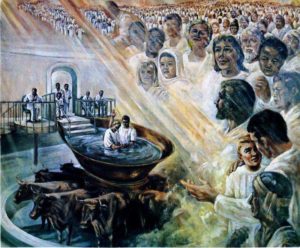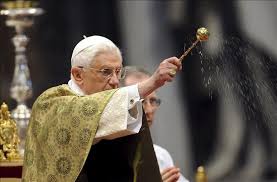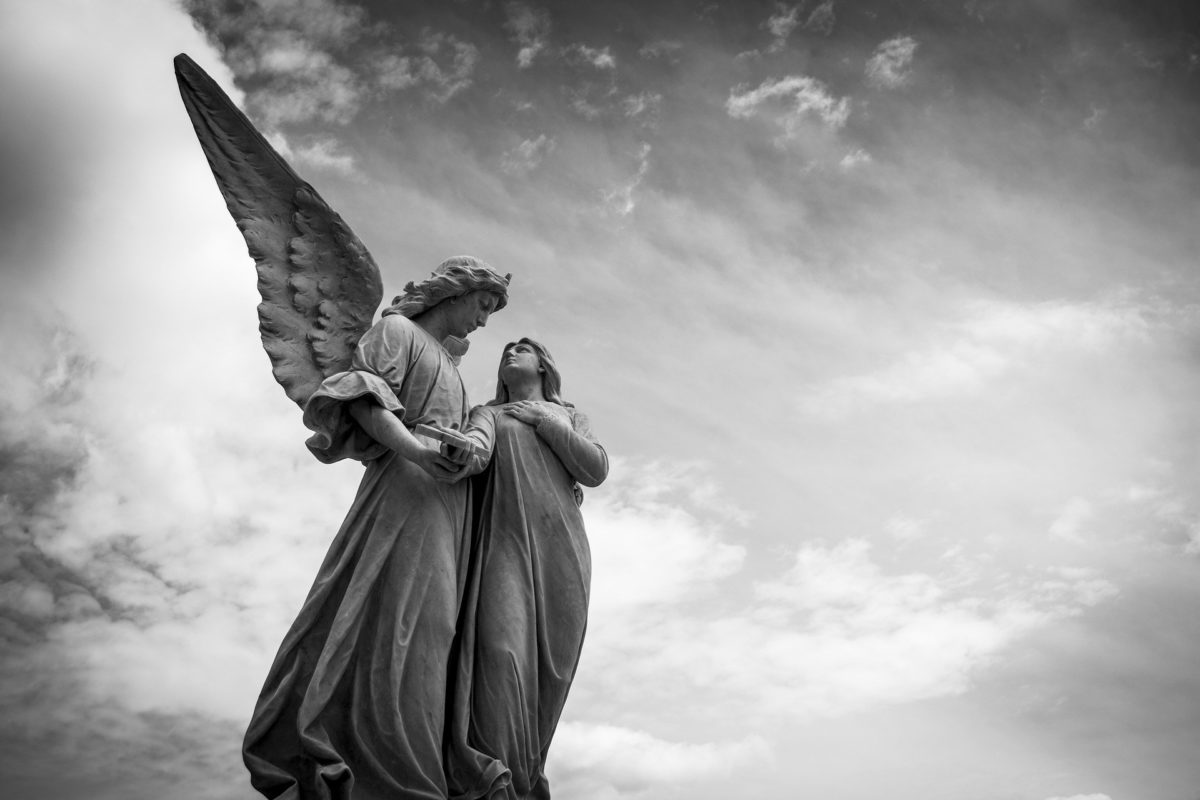Many people do not know who introduced baptism into history, although all religions have a ceremony to welcome their new followers.
I also recommend our article on why baptism is the first sacrament for Christians.
Baptism is usually thought of as an initiation.
For example, when children go to college for the first time, they get their hair cut.
Or some other kind of joke is played on them to initiate them as university students.
Similarly, it is said that when a footballer scores his first goal, he is baptised on the pitch.
From this so-called baptism, other people begin to recognise him as a footballer.
It is the same with baptism in religion.
It means leaving behind the person you were to dedicate your life to what you believe in from that moment on.
Although millions of people use baptism in various activities, they often do not know where this tradition comes from.
They do not know who instituted baptism and why it has this meaning.
We should not do anything without knowing its background.
Often people do things because they are fashionable or just to get by.
Other times it is such a siege that they agree to do it to get rid of the annoyance.
They become puppets of a person or a situation.
To find out who introduced baptism, we need to know a little about its history.
Where baptism comes from
Baptism was originally a pagan religious rite practised in ancient times.
The word comes from the Greek “baptizo”, which means to immerse.
The Romans at the time of Jesus were interested in mystical religions.
Especially those of Egypt and Babylon, where baptism was practised as a ritual.
For example, people who were followers of Isis had to be baptized in order to be recognised as believers.
They had to confess their sins in front of other believers and then be bathed (baptised).
This ritual cleansed him of all his sins and allowed him to be devoted to the goddess.
Jews also practised the ritual of purification, which was common to Levites and non-Levites alike.
For more information, I recommend our article What did the first Christians do after they were baptised?
who instituted baptism
The very man God chose to baptise His Son was a descendant of the Levites.
Christian baptism as we know it today comes from John the Baptist, the same man who baptised Jesus.
The main function of John’s baptism was to reveal that Jesus was the Lamb of God.
So we can say that baptism is not a Christian invention, but preceded others.
It is Jesus who introduced baptism into Christian doctrine by command and practice.
In Christianity, baptism is reported in the four gospels of the Bible.
There we find the reasons why every Christian should be baptised.
Anyone who claims to be a follower of Christ must be baptised in the name of the Father, the Son and the Holy Spirit.
History tells us that until the 4th century AD, baptism was done by immersion.
This was usually done on the banks of a river (as John the Baptist baptised Jesus in the Jordan).
Or in large baptismal pools so that the person could be immersed for purification.
This ritual was only performed on adults.
Why was it done this way?
Adults who decided to be baptised were already responsible for their actions.
They knew the laws of religion and had made a conscious and voluntary commitment to follow God’s way.
It had to be a voluntary act in which they expressed their desire to be recognised as believers.
The immersion in water symbolises the purification of their actions in order to begin a different life.
A life consecrated to the vision of God must therefore be lived in full command of your faculties.
No one can compromise for you, because everyone is responsible for their own actions.
I also recommend our article What are God’s promises to His children who love Him?
Baptism today
Over time, this ritual has become almost automatic.
Today, baptism can vary from church to church.
Although the same elements are used, the ceremony is very different.
Firstly, because the solemnity that such an important event deserves is not maintained.
In some churches, for example, the priest approaches the person to be baptised.
He sprinkles water on the forehead, invoking the Holy Trinity, and prays a prayer that not even the baptised person hears, and he is ready.
He joins the ranks (or numbers) of this congregation.
He is not asked if he knows about the life of Jesus and the step he wants to take.
They are not told what this moment means for their life, nor what it represents.
Often they do not even know why they are standing before the priest.
This is because they mistakenly believe that their salvation is already assured by their baptism.
Another mistake is to baptise babies.
If infants were never baptised in the Bible or in history, why are they being baptised now?
It must be a conscious decision.
To be baptised is to die to the world and live for Christ.
To consecrate one’s life to the service of God, to do only what is pleasing to Him.
What responsibility can a child assume?
Parents are supposed to be responsible for them.
But they are not responsible for themselves!
I recommend our article What is the Teaching of Christ According to the Scriptures.
Just as we cannot allow anyone to manipulate us into making the decision to be baptised.
Nor should you make the decision for anyone. Not even if it is your child.
A person must have the conscience to love God.








